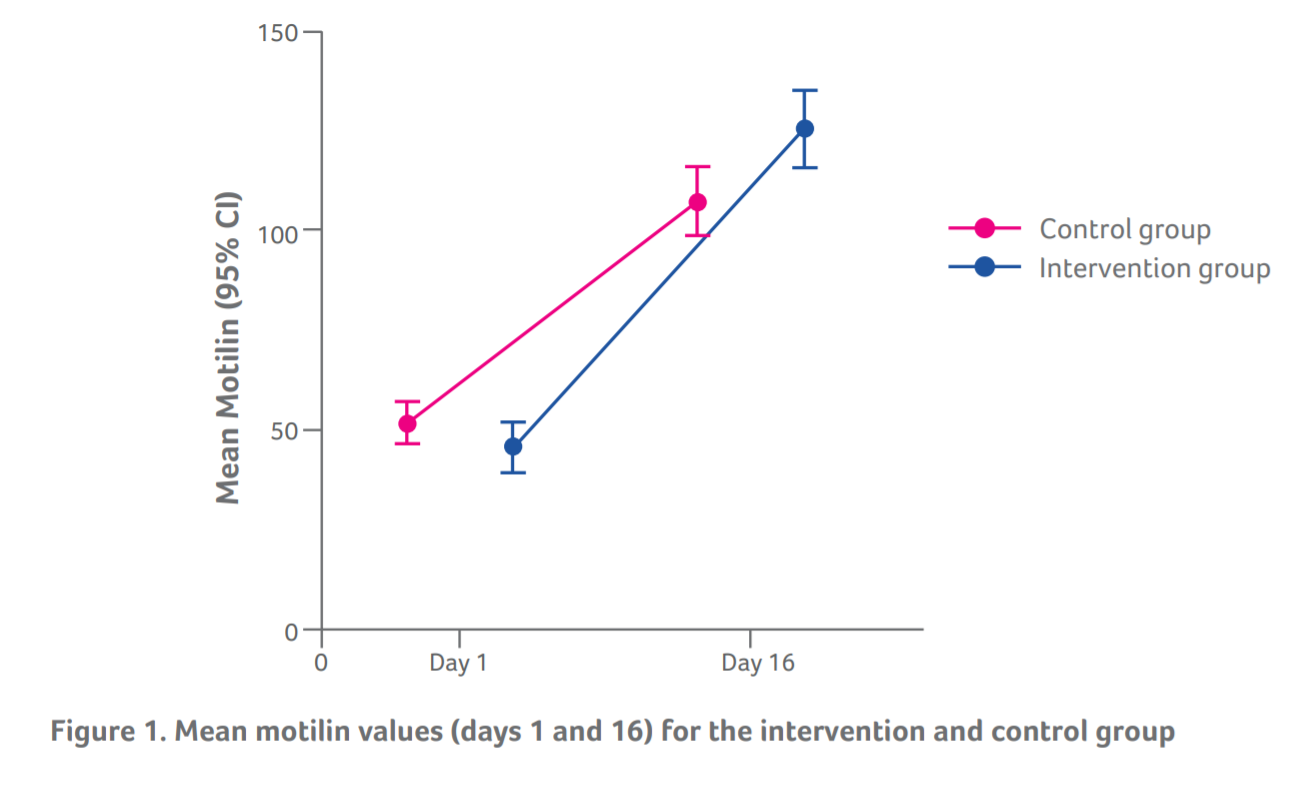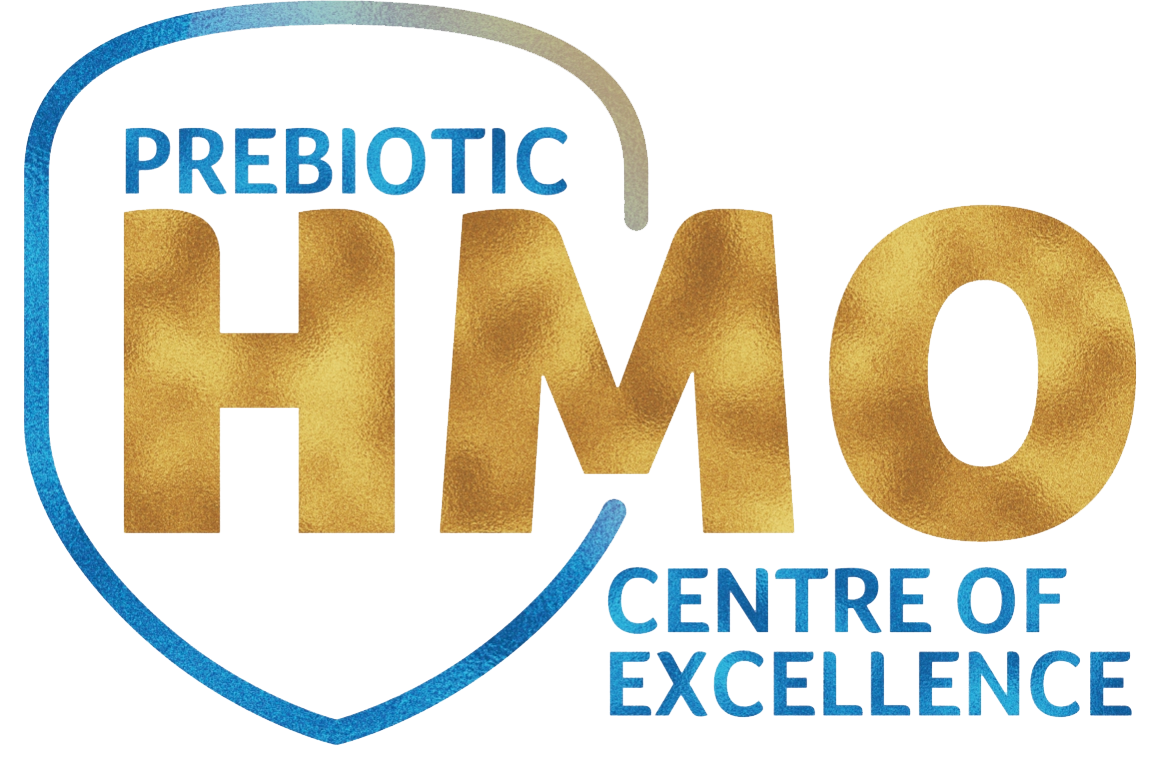Motilin and Gastrin Secretion and Lipid Profile in Preterm Neonates Following Prebiotics Supplementation: A Double- Blind Randomized Controlled Study
Study background
Gut peptide secretion plays vital role in the adaptation of the immature neonatal gut of preterm infants, as their gut matures slower in response to feeding in comparison with term infants. Gastrin and motilin secretions are seen to be high immediately after birth and reduce slowly over a period of 2-3 weeks. The last decade has demonstrated mounting evidence about functional foods such as pro and prebiotics, essential components of breast milk, which promote neonatal gut maturation and adaptation. One of the most essential components of innate immunity is intestinal motility, enhancing gastric emptying and clearing food debris, thus prohibiting pathogen accumulation, overgrowth, and colonisation of the gut. However, gut motility as expressed by gastric emptying and transit times is reduced in preterm infants. Prebiotics have shown to improve gastric motility, probably via a direct effect on antral motility of fiber-rich diet, or indirect modulation of upper gut motility by the SCFAs. The present study was based on the hypothesis that prebiotics may alter the secretion pattern of the gut peptides after the second week of life and exert a lipid-lowering effect.
Study objective
To test the hypothesis that prebiotics could alter the gastrin and motilin secretion and reduce lipids in the healthy premature infant.
Study design
A total of 167 preterm neonates were randomized at birth to receive either a prebiotic enriched preterm formula (intervention group) or a standard preterm formula (control group) between day 1 and day 16 of life.
| Study group | Type of feeding |
|---|---|
| Control group | Formula without scGOS:lcFOS (n=82) |
| Intervention group | Formula with scGOS:lcFOS 0.8g/100ml (n=85) |
All infants were fed according to a feeding protocol with an initial volume of 60 ml/kg of formula on day 1 and advancement of feeds by increments of 30 ml/kg/day up to a maximum dose of 150 ml/kg. Neonates, who were discharged before day 16, and continued to be fed with the same formula according to the protocol, were also included in the study.
Primary outcome
Change in plasma gastrin, motilin and lipid levels between day 1 - day 16.
Secondary outcomes:
Feeding tolerance was assessed as vomit frequency and regurgitation episodes on a 24-hour recording. Stool consistency and frequency was assessed for bowel habits. Frequency of stools was recorded twice hourly after meal.
Adverse events including episodes of NEC and infections were recorded.
Results
- Motilin secretion significantly increased from baseline in both groups and the degree of change was significantly greater in the intervention group (P = 0.001) as compared to the control group, indicating greater mean motilin measurements at day 16 in the intervention group. On the contrary, gastrin did not significantly change in both study groups.
- The lipid parameters increased in both groups from day 1 to day 16. However, the cholesterol levels were significantly greater in the control, as compared with the intervention group (P = 0.037).
- LDL levels were significantly lower in the intervention group on day 16. However, the overall change within the 2 time points was significantly different between the 2 study groups, as indicated from the significant interaction effect (P = 0.001).
- The intervention group clearly showed less frequent gastric residue compared to control group on day1 (21.5% vs 53.8%, P < 0.001). At days 4-16, gastric residue showed no difference (P > 0.05).
- At day 16, the stool frequency in neonates was lower in the control group (72.5%) compared to the intervention group (91.1%) (P=0.002).

Discussion and Conculsion
- The gastrointestinal tract plays a vital role in building the immune system in early neonatal life because one of the most essential components of innate immunity is intestinal motility, enhancing gastric emptying and clearing food debris, thereby prohibiting pathogen accumulation, overgrowth and colonization of the gut.
- This study showed an increased level of motilin for the intervention group as a result of prebiotics supplementation, which helped improve gastric emptying. They also had increased frequency of stools over the study period.
- On the other hand, gastrin contrary to motilin did not significantly change in both study groups.
- NEC and sepsis were slightly less in the intervention group than in the control group, although the difference was not statistically significant.
- The study also confirmed the lipid lowering effect of prebiotics as expressed by lower mean increase of cholesterol together with no detectable change of LDL and lower day 16 LDL levels in the intervention group, as compared with the control group.
- Prebiotic oligosaccharides were found to be well tolerated by preterm infants with minimal adverse events.
Key Findings
- Supplementation of a preterm formula with a specific mixture of scGOS:lcFOS helps improve motilin secretion and stool frequency in preterm infants.
- Increased motilin may be associated with less gastric residue, good feeding tolerance, increased frequency of stools, and no adverse events.
References:
- Dasopoulou M., Briana DD., et al. Motilin and gastrin secretion and lipid profile in preterm neonates following prebiotics supplementation: a double-blind randomized controlled study. JPEN J Parenter Enteral Nutr. 2015 Mar;39(3):359-68.

